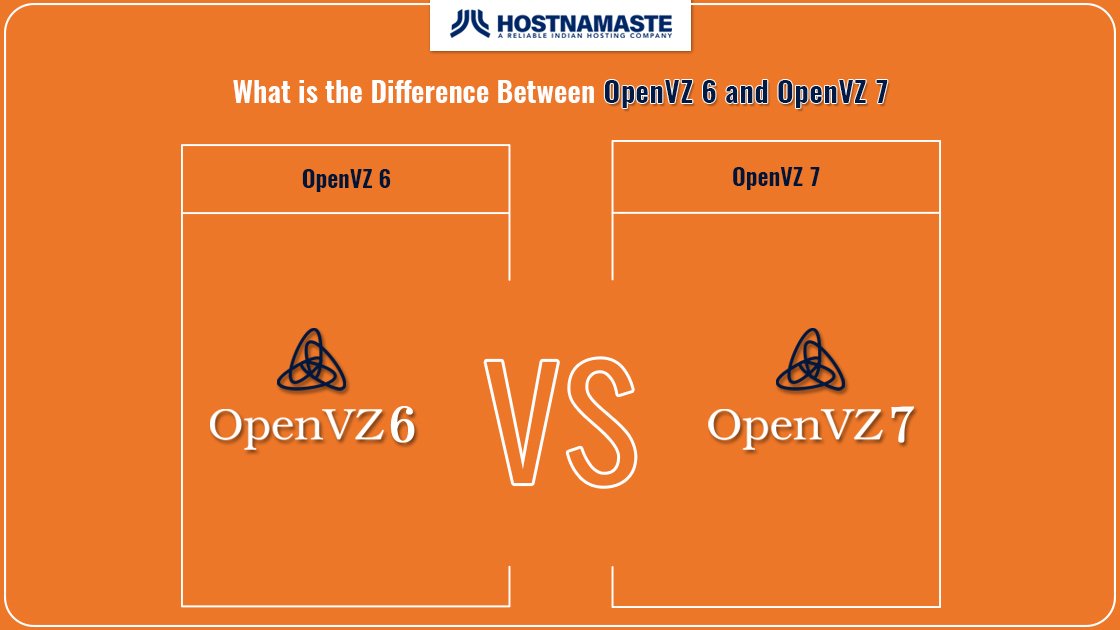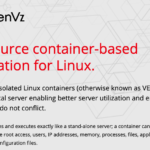
What is new in OpenVZ Virtualization
Before getting to know what is new in the OpenVZ Virtualization, you should first read “What is OpenVZ Virtualization? – All You Need to Know about the OpenVZ Virtualization” to understand exactly what OpenVZ Virtualization is and what it currently offers.
OpenVZ is an open-source operating system-level Virtualization technology that allows multiple isolated Linux-based containers (also called Virtual Private Servers or VPS) to run on a single physical server.
In OpenVZ, the host operating system is shared among all containers, and each container is isolated from other containers and from the host operating system. Each container runs its own user-space environment and appears to have its own Virtualized instance of the operating system, with its own file system, network, and other resources.
OpenVZ virtualization provides several benefits, including high performance and low overhead, efficient use of resources, and easy management and deployment of multiple virtual environments on a single physical server. It is commonly used in hosting and cloud computing environments, where it enables providers to offer cost-effective VPS hosting solutions to customers.
What is OpenVZ 6
OpenVZ 6 is an older version of the OpenVZ Virtualization technology. It was released in 2008 and is based on the Linux kernel version 2.6.18.
OpenVZ 6 was a widely used and popular version of OpenVZ, as it provided a stable and efficient Virtualization platform for hosting providers and other users. It allowed multiple isolated Linux-based containers (VPS) to run on a single physical server with low overhead and high performance.
Some of the key features of OpenVZ 6 included:
- Easy management and deployment of VPS using command-line tools and templates.
- Efficient use of hardware resources, as containers share the host operating system kernel and only Virtualize the user-space environment.
- Support for multiple Linux distributions and versions within the same physical server.
- Scalability and flexibility, as the number of VPS that can run on a single physical server can be increased or decreased depending on the available resources and workload.
While OpenVZ 6 is still supported, it is now an older version and users are encouraged to upgrade to newer versions such as OpenVZ 7 or Virtuozzo 7, which are based on more recent versions of the Linux kernel and provide additional features and improvements.
What is OpenVZ 7
OpenVZ 7 is the latest version of the OpenVZ Virtualization technology. It was released in 2017 and is based on the Linux kernel version 3.10.
OpenVZ 7 builds upon the features of its predecessor, OpenVZ 6, and provides several improvements and new features. Some of the key features of OpenVZ 7 include:
- Improved security with support for SELinux and AppArmor.
- Better scalability and performance with support for more CPU cores and higher memory limits for containers.
- Support for Docker containers and Kubernetes orchestration.
- Easy management and deployment of containers with a web-based management interface, command-line tools, and templates.
- Support for the latest versions of Linux distributions such as CentOS, Debian, and Ubuntu.
- Support for live migration of containers between physical servers.
- Improved networking with support for IPv6 and better network isolation.
OpenVZ 7 is designed to provide a modern and efficient Virtualization platform for hosting providers, cloud providers, and other users. It allows multiple Linux-based containers (OpenVZ VPS) to run on a single physical server with low overhead and high performance, while providing improved security, scalability, and management features.
Related: What is the Difference Between OpenVZ 6 and OpenVZ 7?

Sneak peek of OpenVZ 8 and OpenVZ 9
As of my knowledge cutoff date of September 2021, there were plans for both OpenVZ 8 and OpenVZ 9, but they were not yet released. However, I can provide some information on the planned features and improvements for these versions:
OpenVZ 8:
- Based on the Linux kernel version 5.10.
- Improved scalability and performance with support for larger containers and more CPU cores.
- Improved security with support for Kernel Same-Page Merging (KSM) and Control Groups v2.
- Better compatibility with newer Linux distributions and applications.
- Improved resource management with better support for NUMA and huge pages.
- Improved networking with support for advanced network Virtualization and better network isolation.
OpenVZ 9:
- Based on the Linux kernel version 5.14.
- Improved support for container orchestration with Kubernetes.
- Improved storage management with support for distributed storage solutions.
- Improved security with better support for rootless containers and seccomp filtering.
- Improved networking with support for advanced network Virtualization, software-defined networking (SDN), and container-to-container communication.
It is important to note that plans and features for OpenVZ 8 and OpenVZ 9 may have changed since my knowledge cutoff date, and that the actual release dates for these versions are not yet known.

